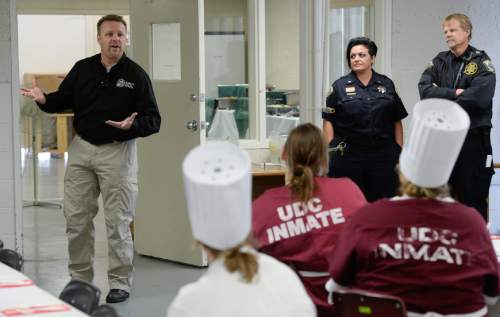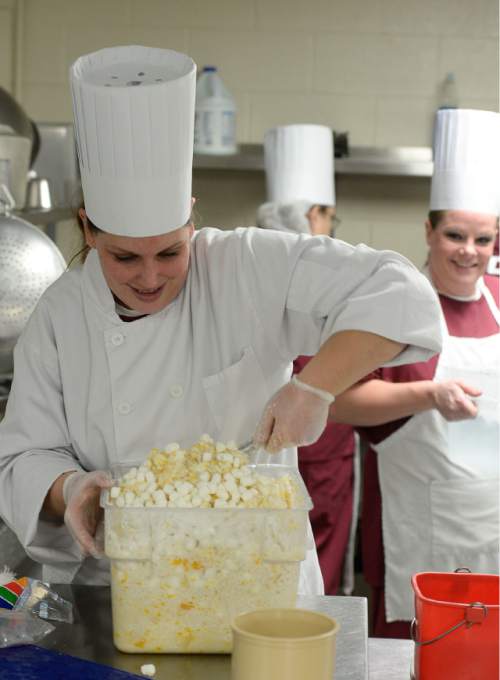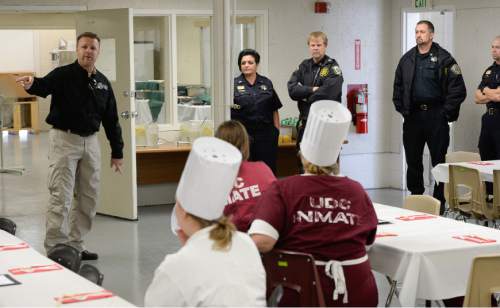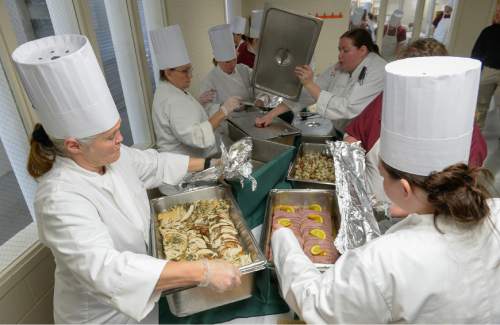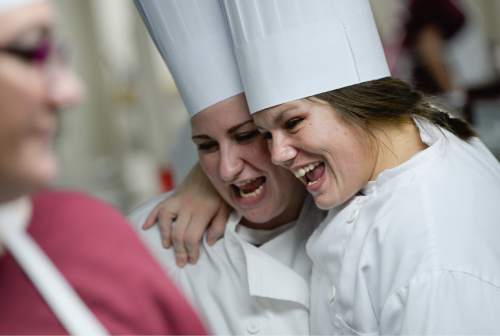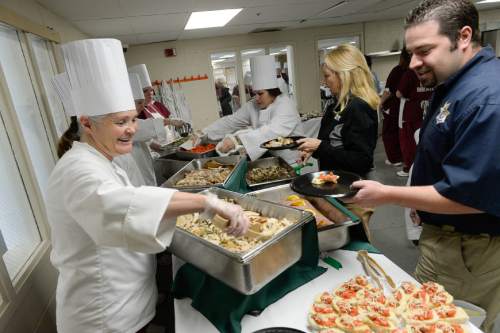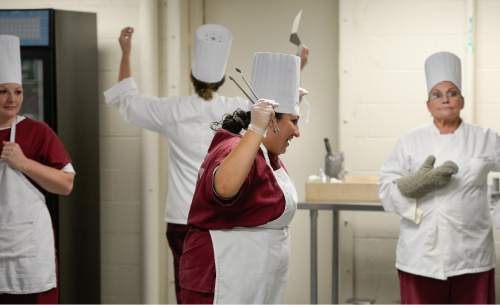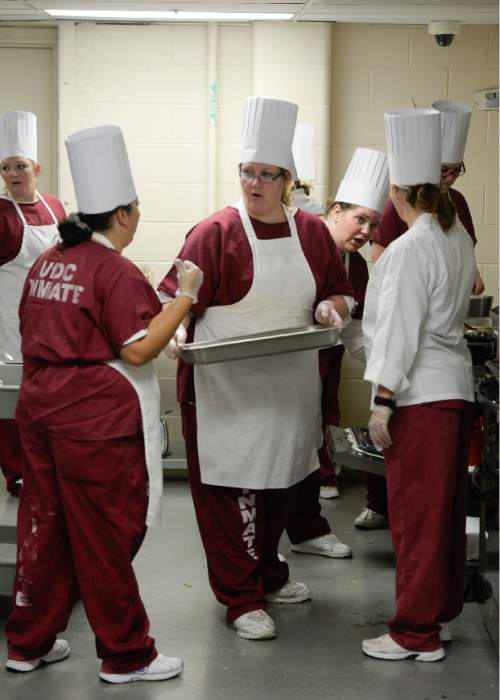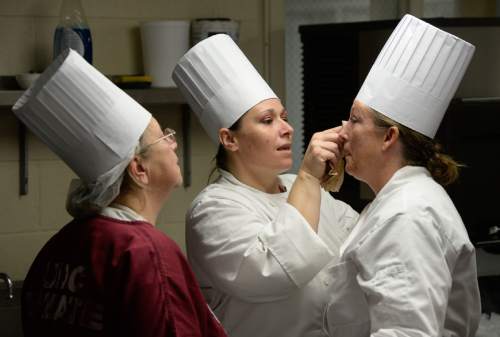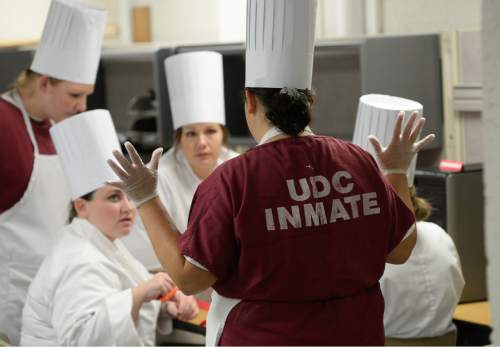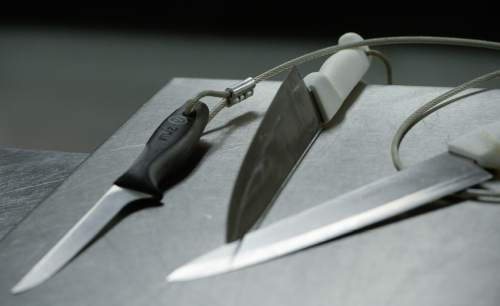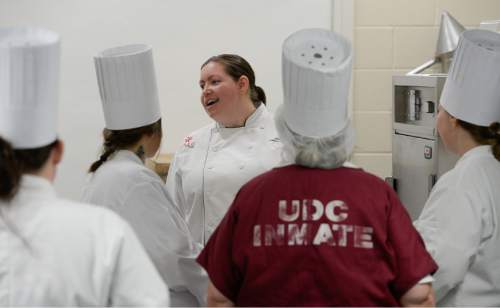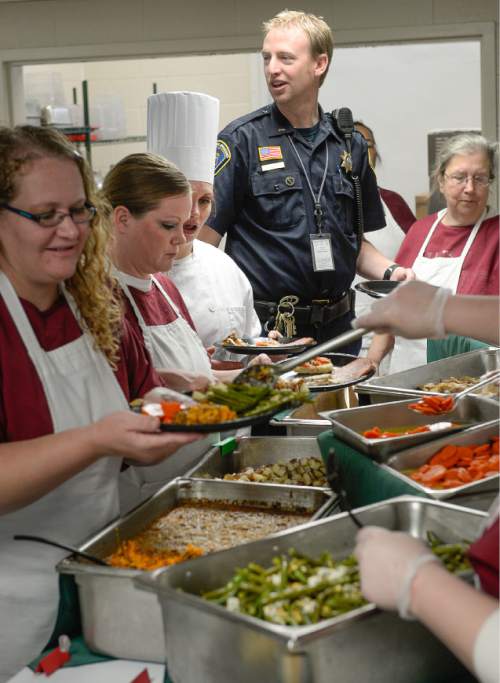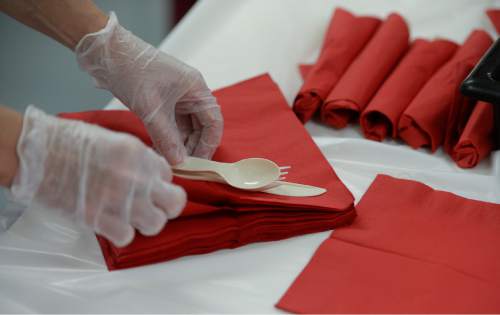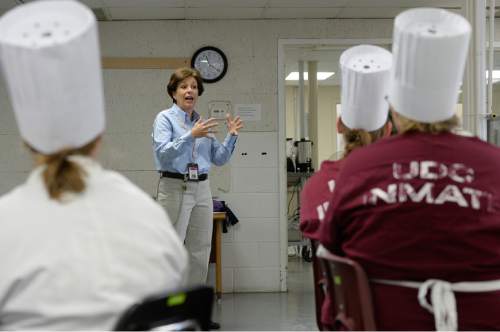This is an archived article that was published on sltrib.com in 2014, and information in the article may be outdated. It is provided only for personal research purposes and may not be reprinted.
Draper • Trish LaRoque is proud — and a bit surprised — at what she has accomplished as an inmate at the Timpanogos women's correctional facility.
The 32-year-old mother of three said she had "never cooked a day in my life" before being sent to prison for theft.
Now, after several months in a culinary-arts program, LaRoque understands food terms such as veloute and ganache; she has the skills to successfully make the basic white sauce and chocolate filling. She also can truss a bird, debone a chicken and make a cake from scratch.
"This is the best thing that has ever happened to me," said LaRoque. "I'm actually envisioning my life now."
Food is creating a new path for her and the 17 other women enrolled in the culinary-arts program. It's one of six vocational offerings that the Davis Applied Technology College (DATC) provides to inmates sentenced to the Utah State Prison. Automotive technology, welding, machining, building maintenance and business technology are the others. There's a separate culinary course for the male inmates.
Inmates must put in the same number of hours and pass the same skills as students on a regular campus, said DATC culinary instructor Monica Hobbs.
"They have to take it seriously and appreciate the chance to come," Hobbs said, noting that there is a waiting list for the program as the food industry provides realistic job opportunities for parolees.
The program also is popular because the food is far better than what's offered in the prison cafeteria, the inmates joke.
The state pays half the tuition of about $3,500, but inmates must take out student loans for the remainder. Some work jobs in the prison — for just a few cents per hour — to help pay back the loans.
Hobbs said before the inmates are allowed in the kitchen, they must complete two weeks of bookwork and pass written exams on everything from equipment to sanitation. Then they are in the kitchen Monday-Friday for six hours each day, until they have met the 1,140 required hours — or are released.
While the Timpanogos culinary kitchen looks like any other commercial operation, there are signs of its uniqueness: knives secured to tables, metal detectors to get into the building and "UDC Inmate" emblazoned on the back of maroon uniforms.
The women enter the culinary program with various skills, said Hobbs. Some barely know how to boil water; others have worked in restaurant kitchens or cooked with — or for — their families.
Most also lack self-esteem, she said. "As they progress through the program, they really gain confidence, especially when they get to share what they have made with others."
That was evident earlier this month when the group planned and prepared the ultimate holiday feast for a dozen or so prison employees.
It was not a typical prison buffet: herbed turkey, orange glazed ham, sweet potatoes with pecans, glazed carrots, green beans, roasted potatoes, acini de pepe or "frog-eye" salad with pineapple and marshmallows, and fresh-baked rolls. For dessert, Christmas cookies, truffles and peppermint cheesecake bars.
Everything was made from scratch, and as each dish was placed on the table, the inmate who prepared it beamed with joy.
Guests, such as prison caseworker Milian Henry, were pleasantly surprised at the quality of the food and the attention to detail that the inmates put into the meal. "It's the best-tasting food I've had in my nine years at the prison," he said.
Lt. Jennifer Stansfield came for lunch, but also to offer encouragement.
"They've all made mistakes and we don't need to keep reminding them of that," she said. "Now we need to focus on positives and the things they can do."
Capt. Jeff Wilson said the vocational programs offer job opportunities and life skills that the inmates will need when they are released. "The goal," he said, "is for them to get out and stay out."
That's why Tessa Mounts, who violated her daughter's custody agreement, is putting all her effort into finishing the culinary certificate. She'll likely start at the bottom in a restaurant or hotel when she gets out of prison. But one day she said she hopes to have her own soup and sandwich cafe.
"Something really bad happened. But now I want to make the most of being here," she said. "I want to overcome this and become a better person."


